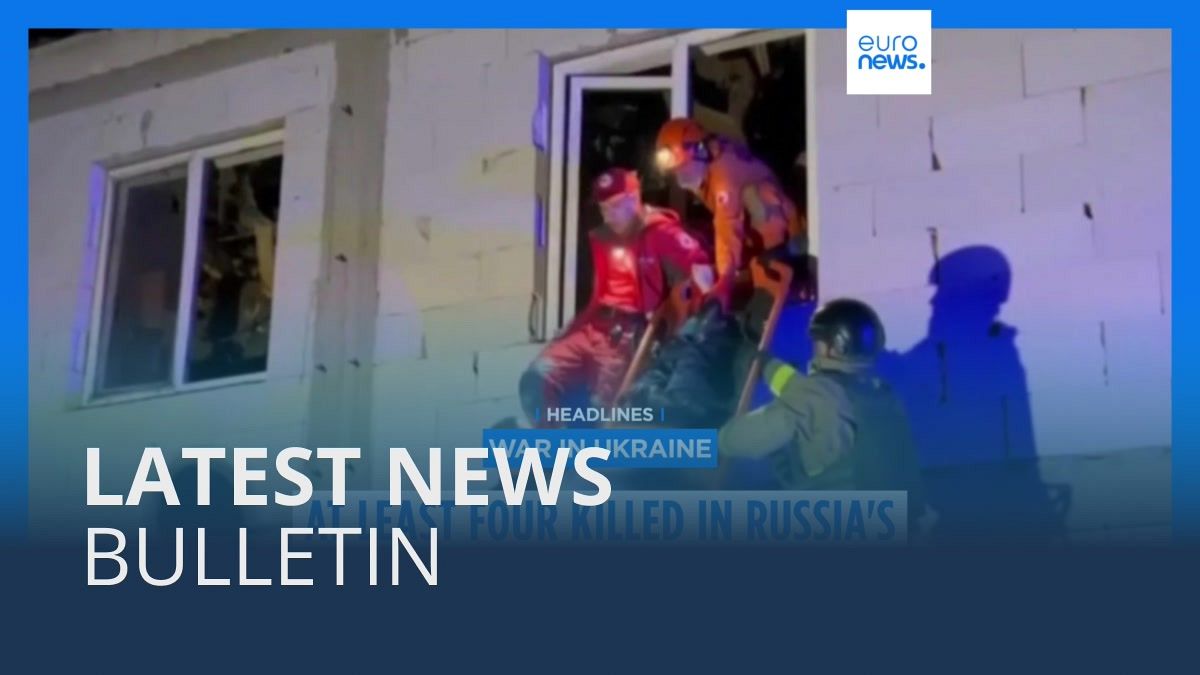Franco-German fight over South American trade deal threatens EU rupture
Ursula von der Leyen granted the wish of her native Germany by flying off to seal an accord with the Mercosur bloc. France, which fiercely opposes the deal, is in uproar.
BRUSSELS — Ursula von der Leyen’s first major act in her second term as EU chief executive is inflaming a severe Franco-German rift and threatening to shake the foundations on which the European Union is built.
The European Commission president, herself a German, jetted off to Uruguay on Thursday in an attempt to seal a landmark EU trade deal with South America that Berlin desperately wants and that France hates. Suggesting that the finishing line for a deal — decades in the making — was finally in sight, she posted on X: “Let’s work, let’s cross it.”
For the Germans, that’s great news. Increasingly frantic about industrial decline, the Mercosur agreement is a prime opportunity to help find new growth markets for Germany’s ailing manufacturing champions. The highly influential VDA car lobby said on Thursday it was of “central importance” to clinch the deal.
For the French, von der Leyen’s Montevideo trip is anathema. Hatred of the Mercosur deal with Argentina, Brazil, Uruguay, Paraguay and Bolivia permeates the whole political class. The French fear the accord will undermine their farmers with a tide of cheap poultry and beef from Latin America — and will whip up popular rage against the establishment and the EU.
The Paris-Berlin rift is so sensitive to the whole EU because negotiating trade deals is one of the most critical competences entrusted to the European Commission on behalf of all 27 EU countries. France’s repeated vetoes to the Mercosur deal are infuriating German leaders to such an extent that they are questioning the point of Brussels handling trade, and even suggest it might make more sense for Berlin to take back control of its own trade policy.
Such a radical clawback of powers — trade is one of the so-called core competences uniting the bloc under Brussels — would raise major questions of the EU’s raison d’être.
Only a week into her second term, the Montevideo trip is therefore a massive gamble for von der Leyen, particularly given the growing political crisis in France, where the government collapsed on Wednesday night.
President Emmanuel Macron has campaigned for years to stall the deal. His office said he had spoken to von der Leyen on Thursday, telling her that the accord remained unacceptable in its current form. “Without letting up, we will continue to defend our agricultural sovereignty,” the Élysée said.
Whatever happens in Uruguay — the risks are growing that one of the EU’s two largest economies — founding members of the bloc that over decades worked together to build a common market of 450 million people — will break ranks and go it alone: Germany to press ahead with the deal, and France to rebel against it.
“The short-term battle is won on their side, but the long-term war to maintain European unity could be affected,” said one French official, who was granted anonymity to discuss the file candidly in the middle of a government crisis.
In Germany, by contrast, the mood was more celebratory.
“A really good day for Europe and also for Germany. This federal government has fought with a lot of energy to ensure that this free trade agreement comes about,” said Isabel Cademartori from Chancellor Olaf Scholz’s Social Democrats, speaking in a parliamentary debate.
Rallying the resistance
It’s been a hard-fought battle as Berlin and Paris scrambled to recruit allies as negotiations accelerated between the EU and Mercosur over recent months.
Even though France’s de facto veto against major trade agreements hasn’t survived its political crisis at home and loss of influence in Brussels, it has sought to rally the blocking minority of EU member states it would need to kill the deal in the Council of the EU — the bloc’s intergovernmental arm.
That would require the support of countries representing 35 percent of the EU population. While Poland recently joined the anti-deal camp, Italy hasn’t yet flipped. That leaves Macron still short of the votes he would need.
It’s not like Paris didn’t try.
“The president of the republic spoke with [Italy’s Prime Minister Giorgia] Meloni to make sure that the French voice was not the only one. He talked about it with von der Leyen. The ministers are also doing their job. The [ambassador to the EU] is doing his job too. Everyone is playing their part at every level to get that message up there,” said Marie-Pierre Vedrenne, a European lawmaker allied to Macron.
But for all the concerns about cheap Mercosur beef and poultry flooding the European market, the French warning remained unheard this time around.
“Ursula von der Leyen could not have chosen a worse moment than this. It’s a big mistake to do this now. It really gives the impression of taking advantage of the crisis in France to try and get ahead on her own,” said Christophe Grudler, another member of the European Parliament from Macron’s liberal camp.
Combustible rage
For all the political turmoil in France, Berlin, and the proponents of the deal, argue that deepening ties with the Mercosur countries is above all a question of geopolitical credibility for the bloc — at a time when Donald Trump is on the verge of triggering an all-out trade war once he officially takes over as U.S. president.
“The president of the Commission has the interests of the whole EU in mind. And it is a truly geopolitical, geostrategic issue,” said a government official from a big EU country.
“If we always say that Europe has to be strong in the world and keep up with China and the U.S., then we can’t say that we won’t do that with an agreement of this scope.”
The agreement can also be seen as payback time for Germany, after the European Commission went ahead with an investigation into Chinese electric vehicles that was supported by Paris — to Berlin’s dismay. Berlin found itself on the losing side of a vote to impose import duties on Made-in-China EVs, while France was able to celebrate the win.

Sealing the deal over France’s head is sparking fears that this will further fuel already-strong anti-EU sentiment in the country, pushing far-right leader Marine le Pen closer to power.
“I can imagine the nuclear explosion in French opinion against Europe if the Commission ever releases its split Mercosur [deal] in the midst of a political stampede on the national scene,” said François Chimits, an economist at the French research center CEPII.
Chimits warned of “political instability that would result from a big agreement in a country that is both very sensitive to trade openings and has a real extreme right-wing at the door of power.”
Von der Leyen will return from Uruguay and make a stop in Paris on Saturday to attend the reopening of the Notre-Dame Cathedral.
She might well find the welcome from Macron less warm than the one she received in Montevideo.
Camille Gijs reported from Brussels, Giorgio Leali and Clea Caulcutt reported from Paris, Nette Nöstlinger reported from Berlin. Eddy Wax, Hans von der Burchard and Nicholas Vinocur contributed reporting.
What's Your Reaction?



















































